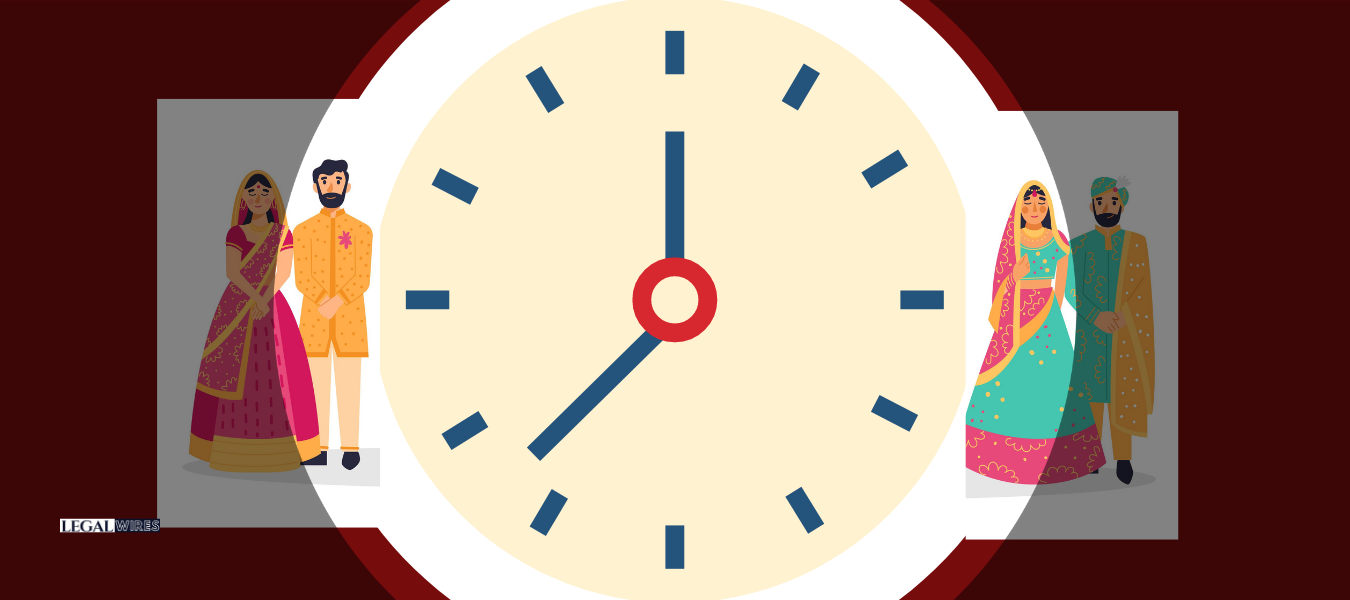Bhaurao Shankar Lokhande (Appellant No. 1) married to Indubai in the year 1956.

Citation: AIR 1965 SC 1564
Date of Judgement: 1st February, 1965
Bench: J.R. Mudholkar, Raghubar Dayal and V. Ramaswami,
Facts:
- Bhaurao Shankar Lokhande (Appellant No. 1) married to Indubai in the year 1956.
- He also married Kamlabai in Feb, 1962 while Indubai was still alive.
- Deorao Shankar Lokhande (Appellant No. 2), the brother of first appellant along with Kamlabai’s father and a barber were present at the time of their marriage.
- Appellant No. 1 was convicted under Section 494, IPC and Appellant No. 2 was convicted under Section 494 and Section 114, IPC and the latter three were acquitted by the Magistrate.
- Appeal to the Sessions Judge was dismissed and revision petition in the High Court which was also dismissed. Hence, they made an appeal by special leave before the Supreme Court.
Issues raised:
- Whether the marriage on Feb, 1962 performed with valid ceremonies?
No
It was alleged that the second marriage was in ‘Gandharva’ form. However, there are two ceremonies essential to the validity of a marriage, whether the marriage be in the Brahma form or the Asura form, namely-
(1) invocation before the sacred fire, and
(2) saptapadi, that is, the taking of seven steps by the bridegroom and the bride jointly before the sacred fire.
It was established that these two ceremonies were not performed and no evidence on record was presented before court to establish that the performance of these two essential ceremonies has been abrogated by the custom prevalent in their community.
It was submitted that about 5-7 years earlier the performance of certain ceremonies was given up. But this departure could not be held as a custom as ‘custom’ and ‘usage’ signify any rule which, having been continuously and uniformly observed for a long time, has obtained the force of law among Hindus in any local area, tribe, community, group or family.
So, marriage between Appellant no. 1 and Kamlabai was not performed in accordance with the customary rites as required by Sec 7 of the HMA.
- Whether it is necessary for offence u/s 494 of IPC that the marriage is performed with valid ceremonies?
Yes
Sec 494 IPC requires that marriage must be a valid one. For a valid marriage, Sec 17 of HMA provides for two essential conditions:
- The marriage is solemnized after the commencement of the Act;
- at the date of such marriage, either party had a spouse living.
So, if a marriage cannot be said to be ‘solemnized’, that marriage will not be void by virtue of Sec 17 of the Act and Sec 494 I.P.C. will not apply to such parties to the marriage as had a spouse living.
The word ‘solemnize’ means, in connection with a marriage, ‘to celebrate the marriage with proper ceremonies and in due form’. It follows, therefore, that unless the marriage is ‘celebrated or performed with proper ceremonies and due form’ it cannot be said to be ‘solemnized’. It is therefore essential, for the purpose of s. 17 of the Act, that the marriage to which Sec 494 I.P.C. applies on account of the provisions of the Act, should have been celebrated with proper ceremonies.
Judgement:
The Supreme Court overruled the judgement of High Court and held that since the marriage between appellant no. 1 and Kamlabai performed without certain ceremonies as per the law, that marriage cannot be said to solemnized within the sec 17 of Hindu Marriage Act, 1955. The court allowed the appeal and set aside the conviction of appellants under Sec 494 with Sec 114 of IPC.


